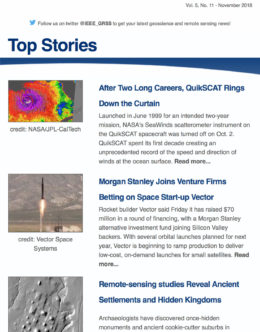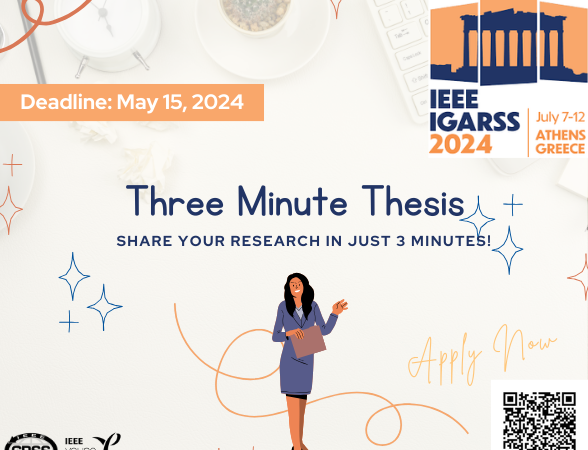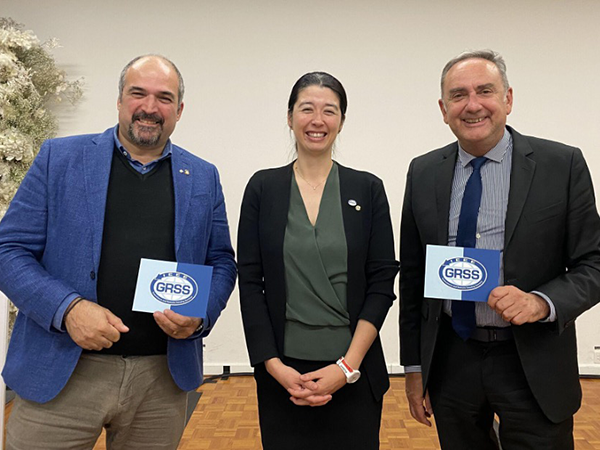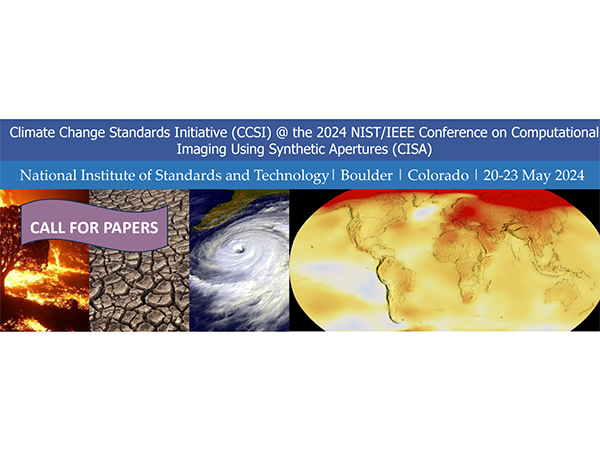The Role of Data Systems to Enable Open Science
Earth Science Informatics TC Webinar
Webinar Speaker: Dr. Rahul Ramachandran
- October 8, 2021
- 11:00 AM EDT
- NASA/MSFC

About the Webinar
Open science is defined as a collaborative culture enabled by technology that empowers the open sharing of data, information, and knowledge within the scientific community and the wider public to accelerate scientific research and understanding. Drivers for this cultural shift are several. First, the rapid rise in data volume and velocity has disrupted the scientist’s traditional analytic workflows and added data management burden. Second, new technology advancements have enabled more efficient science workflows and created new mediums for collaboration amongst researchers and the broader community. Finally, improved accessibility to new and existing data has opened opportunities to tackle complex, interdisciplinary science problems spanning domain boundaries. Solving these complex problems necessitates collaboration across traditionally siloed scientific communities, new computational platforms, and the union of different types of expertise, knowledge, and resources.
Open science efforts focus on three primary areas – expanding access to science both as a way of thinking and as a body of knowledge, making the research processes and knowledge dissemination efficient, and improving our ability to measure the impact of scientific research. This webinar will present an overview of NASA’s Earth science data system and its shift from supporting Open data to Open science. The webinar will also provide examples of activities and tool development currently underway that support this shift to Open science.
Speakers’ Bio
Dr. Rahul Ramachandran is a Senior Research Scientist for the National Aeronautics and Space Administration (NASA) at Marshall Space Flight Center (MSFC). His research centers on Earth Science Informatics and Data Science, focusing on applying novel computational methods and information technology to processing, discovering, analyzing, and visualizing Earth Science data and information. In addition, Dr. Ramachandran manages the Inter-Agency Implementation and Advanced Concepts (IMPACT) team at NASA/MSFC. IMPACT supports the Earth Science Data Systems (ESDS) Program to expand open science through innovation, partnerships, and technology.
Dr. Ramachandran has written over 75 peer-reviewed publications, including four book chapters and 150 other scientific publications. He has served as the Deputy Editor for the Earth Science Informatics Journal (Springer), the Guest Editor for the Computer and Geosciences Journal (Elsevier). He currently serves on the editorial board for CODATA’s Data Science Journal.
Dr. Ramachandran received the Presidential Early Career Award for Scientists and Engineers (PECASE) award in 2009 and the NASA Exceptional Achievement Medal in 2018. He is also a Senior IEEE member.



























